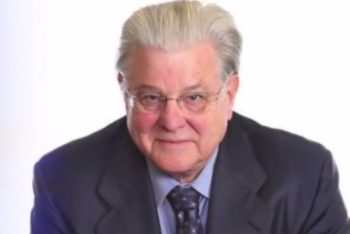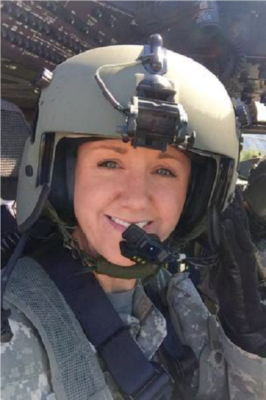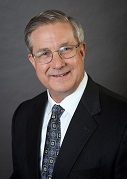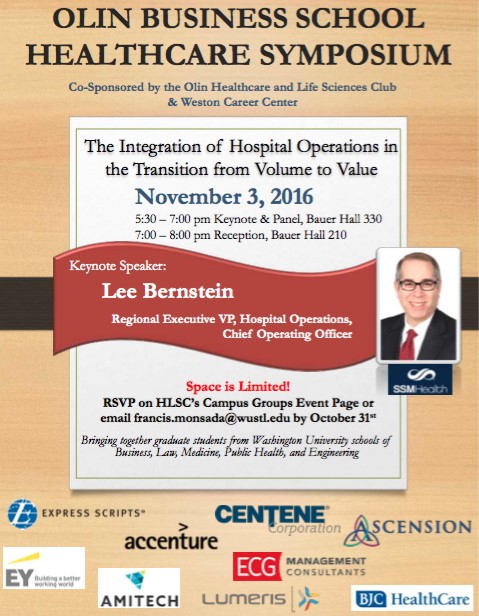SAN JOSE, CALIF. – The Advanced Medical Technology Association (AdvaMed) today bestowed the fifth annual AdvaMed Lifetime Achievement Award to former Beckman Coulter CEO and Chairman John P. “Jack” Wareham, for his contributions to improving patient care and health care system efficiency through innovation of clinical laboratory testing.

Jack Wareham
“Jack is one of the unsung heroes of modern medical practice,” said Scott Whitaker, president and CEO of AdvaMed. “His work at Beckman Coulter helped pioneer automation in the clinical laboratory and transformed the diagnostic industry as a result. Millions of people every year benefit from his vision of more accurate and efficient clinical testing, and we are honored to present Jack this year’s Lifetime Achievement Award.”Wareham began his career in the life sciences after earning a bachelor’s of science degree in pharmacy from Creighton University in Omaha, Nebraska. He worked as a pharmacist while earning an MBA from Washington University in St. Louis, Missouri, and worked his way through the ranks of the pharmaceutical company, Smith, Kline and French.
SmithKline acquired laboratory instruments company Beckman Instruments in 1981 in a $1 billion deal. Beginning in 1984, Wareham held several senior management positions in the new division. In 1993, he was named president and COO of Beckman Instruments, which was spun off as a separate, public company in 1989.
As COO, he was the driving force behind the successful merger in 1997 of Beckman Instruments with Coulter Corporation, the leading manufacturer of systems for blood and other cell analysis. In 1998, he was named CEO of the newly formed Beckman Coulter.
Today Beckman Coulter is recognized as a powerhouse in the diagnostics industry, developing and marketing instruments, chemistries, software and supplies to simplify and automate laboratory operations, and ultimately save patient’s lives.
After retiring from Beckman Coulter in 2005, Wareham has continued to share his vision and business expertise, helping to guide a number of diverse enterprises as a director for medtech companies including Steris, ResMed, Accuray and Greatbatch
Wareham also served as chairman of the Board for AdvaMed in 2000, helping lead the association in a new direction for the 21st Century as it rebranded from the Health Industry Manufacturer’s Association.
“I am proud to be honored by my peers with this incredible award,” said Wareham, “and I gratefully accept on behalf of all the wonderful people I’ve worked with over the years who are dedicated to improving patient care.”
AdvaMed’s Lifetime Achievement Award highlights the accomplishments of pioneers in the medical technology sector whose contributions have had a significant impact on patients’ lives and the industry as an essential part of America’s economy. The award was presented during The MedTech Conference powered by AdvaMed at the San Jose Convention Center.
AdvaMed member companies produce the medical devices, diagnostic products and health information systems that are transforming health care through earlier disease detection, less invasive procedures and more effective treatments. AdvaMed members range from the largest to the smallest medical technology innovators and companies.



 Buehner’s accomplishments cross the educational, military and healthcare sectors. An alumnus of Olin’s Executive MBA program (EMBA), Buehner served ten years in the Army as a Black Hawk pilot. Her husband is a fellow army aviator and she did not originally intend on leaving the Army, but family responsibilities took priority. With three kids ranging from ages one to four, a pending assignment to Germany for six months provided a milestone moment for Buehner. She chose to care for her young children stateside, and in so doing, that pivotal moment opened the door for a career-changing opportunity, earning her MBA degree via WashU’s EMBA program.
Buehner’s accomplishments cross the educational, military and healthcare sectors. An alumnus of Olin’s Executive MBA program (EMBA), Buehner served ten years in the Army as a Black Hawk pilot. Her husband is a fellow army aviator and she did not originally intend on leaving the Army, but family responsibilities took priority. With three kids ranging from ages one to four, a pending assignment to Germany for six months provided a milestone moment for Buehner. She chose to care for her young children stateside, and in so doing, that pivotal moment opened the door for a career-changing opportunity, earning her MBA degree via WashU’s EMBA program. Buehener credits her journey through EMBA with connecting her to the business realm, pointing out that the “classes are… comprised of experienced professionals.” Through molding her in-depth military operations experience with her acquired real-world business knowledge and connections at WashU, Buehner is looking forward to the next chapter of her joint venture.
Buehener credits her journey through EMBA with connecting her to the business realm, pointing out that the “classes are… comprised of experienced professionals.” Through molding her in-depth military operations experience with her acquired real-world business knowledge and connections at WashU, Buehner is looking forward to the next chapter of her joint venture.





 The theme of the symposium was the “Integration of Healthcare Operations in the Transition from Volume to Value-Based Models.” Our keynote speaker was Lee Bernstein, the Regional Executive Vice President of Hospital Operations and Chief Operating Officer of SSM Health. He spoke of current challenges in providing care, adherence to quality programs, and the “survival mode” of the state of hospitals. During the transition model from volume-based to value-based models, Mr. Bernstein emphasized the need to have “a foot in each canoe”—utilizing volume-based models to gather revenue while optimizing the hospital to comply with value-based models.
The theme of the symposium was the “Integration of Healthcare Operations in the Transition from Volume to Value-Based Models.” Our keynote speaker was Lee Bernstein, the Regional Executive Vice President of Hospital Operations and Chief Operating Officer of SSM Health. He spoke of current challenges in providing care, adherence to quality programs, and the “survival mode” of the state of hospitals. During the transition model from volume-based to value-based models, Mr. Bernstein emphasized the need to have “a foot in each canoe”—utilizing volume-based models to gather revenue while optimizing the hospital to comply with value-based models.